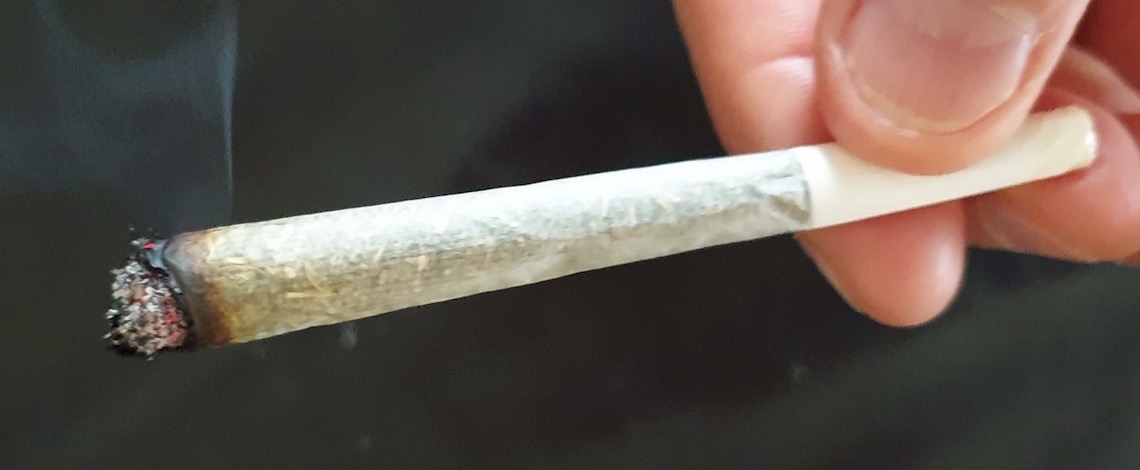
This cropped image is from Flickr user Dominic Milton Trott. See a link to the Creative Commons license below
Written by Frank Lopez
A law going into effect next year will create a new protected class in the workplace — marijuana users.
Assembly Bill No 2188, signed into law by Gov. Gavin Newsom last September, prohibits employers from penalizing employees for using cannabis outside of work.
Going into effect on Jan. 1, 2024, AB 2188, will make it unlawful for employers to discriminate against a person in hiring, terminating or placing any term or condition of employment based upon a person’s use of cannabis off the job and outside of the workplace.
The law does not apply to preemployment drug testing, or to employer-required drug screening tests in hair, blood, urine or other bodily fluids.
Certain job applicants and employees are exempted from the law’s provisions, including employees in the building and construction trades, and those requiring a federal background investigation or clearance.
It does not preempt state or federal laws that require applicants or employees to be drug screened as a condition of employment, particularly jobs from employers that receive federal funding, federal licensing benefits or federal contracts.
With the proliferation of legal cannabis dispensaries and cannabis delivery services across the state, it was natural that laws would be drawn up in regard to cannabis and the workplace, said Shelline Bennett, managing partner with law firm Liebert Cassidy White for its Fresno and Sacramento offices.
The California Fair Employment Housing Act (FEHA) lists protected classes for employees under the law, which include race, color, religion, gender identity, sexual orientation. AB 2188 would add cannabis users to the list of protected classes.
Bennett said the law is really rocking the employment world, more on the employer’s side, but also with employees who do not use cannabis themselves.
“Employees may be also scratching their heads on this one, because if they don’t participate in recreational or medical off-duty marijuana use they may be thinking, like their employer, ‘what happens when my coworker shows up high to work — do I have to watch them be high and do extra work to cover for them,’” Bennett said.
Employers will need to update policies to specifically forbid on-duty cannabis use and impairment, and then define what off-duty and “away from the workplace” means, especially with remote work and hybrid work, she said.
When it comes to telling whether an employee is high on the job, lawyers and scientists agree that there is no accurate method for testing currently available, Bennett said.
Bennet said employers will need to train their supervisors and probably some non-supervisors on detecting impairment.
Companies are working on developing more accurate testing for THC, the psychoactive compound in marijuana.
However, having supervisors and fellow employees detect cannabis impairment could create uncertainty. A punished or terminated employee that challenges their case in court creates a question on a witnesses’ credibility, or whether they have a personal problem with an employee accused of being impaired.
There is also a confusion on a situation where an employee on their break or lunch, away from the worksite, can legally consume cannabis and then come back to work.
Demanding on-site drug testing based on a suspicion of impairment could lead to legal privacy challenges.
Bennett said the law is leaving creating anxiety among business owners.
Bennett said she has not seen AB 2188 get much attention. She expects employers will be surprised when they hear about this law.
Bennett stresses that since the law categorizes cannabis users as a protected class, employers need to update their employee handbooks specifying that impairment on the job is prohibited, and potentially terminable.
“Employers need to get their mindsets right—whatever their beliefs and thoughts are on cannabis use — it’s now the law in the workplace. Wrap your mind around it and get your policies updated,” Bennett said.








